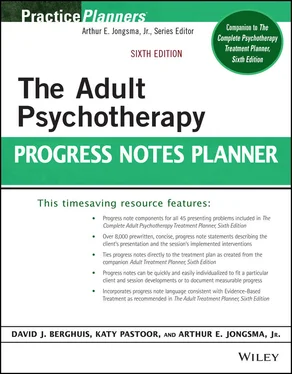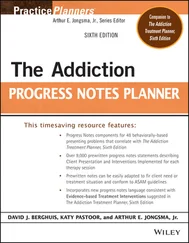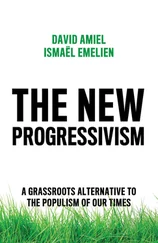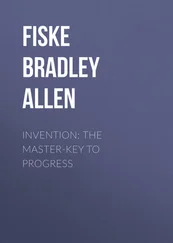4 Identity Disturbance (4)The client has a history of being confused as to who he/she/they are and what his/her/their goals are in life.The client has become very intense about questioning his/her/their identity.The client has become more assured about his/her/their identity and is less reactive to this issue.
5 Impulsivity (5)The client described a history of engaging in impulsive behaviors that have the potential for producing harmful consequences for self.The client has engaged in impulsive behaviors that compromise his/her/their reputation with others.The client has established improved control over impulsivity and considers the consequences of his/her/their actions more deliberately before engaging in behavior.
6 Suicidal/Self-Mutilating Behavior (6)The client reported a history of multiple suicidal gestures and/or threats.The client has engaged in self-mutilating behavior on several occasions.The client made a commitment to terminate suicidal gestures and threats.The client agreed to stop the pattern of self-mutilating behavior.There have been no recent reports of occurrences of suicidal gestures, threats, or self-mutilating behavior.
7 Affective Instability (7)The client described a history of affective instability due to marked mood reactivity when stress occurs in his/her/their life.The client's mood reactivity is usually quite short lived, as he/she returns to a calm state after demonstrating strong feelings of anger, anxiety, or depression.The client emotional lability has been reduced and he/she/they report less frequent incidents of mood reactivity.
8 Feelings of Emptiness (8)The client reported a chronic history of feeling empty and bored with life.The client's frequent complaints of feeling bored and that life had no meaning had alienated him/her/them from others.The client has not complained recently about feeling empty or bored, but appears to be more challenged and at peace with life.
9 Intense Anger Eruptions (9)The client frequently has eruptions of intense and inappropriate anger triggered by seemingly insignificant stressors.The client seems to live in a state of chronic anger and displeasure with others.The client's eruptions of intense and inappropriate anger have diminished in their frequency and intensity.The client reported that there have been no incidents of recent eruptions of anger.
10 Transient Paranoia or Dissociation (10)The client reports transient stress-related paranoid ideation.The client has a history of dissociative symptoms when experiencing transient stress.The client has made progress in stabilizing his/her/their pattern of paranoid ideation and dissociative symptoms in reaction to transient stress.The client copes well with transient stress.
11 Feels Others Are Unfair (11)The client made frequent complaints about the unfair treatment he/she/they believe that others have given him/her/them.The client frequently verbalized distrust of others and questioned their motives.The client has demonstrated increased trust of others and has not complained about unfair treatment from them recently.
12 Black-or-White Thinking (12)The client demonstrated a pattern of analyzing issues in simple terms of right or wrong, black or white, trustworthy versus deceitful, without regard for extenuating circumstances before considering the complexity of the situations.The client's black-or-white thinking has caused him/her/them to be quite judgmental of others.The client finds it difficult to consider the complexity of situations, but prefers to think in simple terms of right versus wrong.The client has shown some progress in allowing for the complexity of some situations and extenuating circumstances, which might contribute to some other people's actions.
13 Childhood Trauma (13)The client reported that he/she had a history of physical, sexual, or emotional abuse.The client reported that painful memories of abusive childhood experiences are intrusive and unsettling.The client reported that nightmares and other disturbing thoughts related to childhood abuse interfere with his/her sleep.The client reported that his/her emotional reactions associated with the childhood abusive emotional experiences have been resolved.The client was able to discuss his/her childhood abusive experiences without being overwhelmed with negative emotions.
INTERVENTIONS IMPLEMENTED
1 Establish Rapport (1) 2 Caring was conveyed to the client through support, warmth and empathy.The client was provided with nonjudgmental support and a level of trust was developed.The client was urged to feel safe in expressing his/her borderline symptoms.The client began to express feelings more freely as rapport and trust level have increased.The client has continued to experience difficulty being open and direct about his/her/their expression of painful feelings; he/she/they were encouraged to use the safe haven of therapy to express these difficult issues.
2 Focus on Strengthening Therapeutic Relationship (2)The relationship with the client was strengthened using empirically supported factors.The relationship with client was strengthened through the implementation of a collaborative approach, agreement on goals, demonstration of empathy, verbalization of positive regard, and collection of client feedback.The client reacted positively to the relationship-strengthening measures taken.The client verbalized feeling supported and understood during therapy sessions.Despite attempts to strengthen the therapeutic relationship, the client reports feeling distant and misunderstood.The client has indicated that sessions are not helpful and will be terminating therapy.
3 Assess Behavior, Affect, and Cognitions (3)The client's experience of distress and disability was assessed to identify targets of therapy.The client's pattern of behaviors (e.g. parasuicidal acts, angry outbursts, overattachment) was assessed to help identify targets for therapy.The client's affect was assessed, including emotional overreactions and painful emptiness, in regard to targets for therapy.The client's cognitions were assessed, including biases such as dichotomous thinking, overgeneralization, and catastrophizing, to assist in identifying targets for therapy.Specific targets for therapy were identified.
4 Explore Childhood Abuse/Abandonment (4)Experiences of childhood physical or emotional abuse, neglect, or abandonment were explored.As the client identified instances of abuse and neglect, the feelings surrounding these experiences were processed.The client's experiences with perceived abandonment were highlighted and related to his/her/their current fears of this experience occurring in the present.As the client's experience of abuse and abandonment in his/her/their childhood was processed, he/she/they denied any emotional impact of these experiences on self.The client denied any experience of abuse and abandonment in his/her/their childhood, and he/she/they were urged to talk about these types of concerns as he/she/they deem it necessary in the future.
5 Assess Substance Use History (5)The client's use of alcohol and other mood-altering substances was assessed.The client's use of alcohol and other mood-altering substances can be treated as a self-harm behavior.The client's use of alcohol and other mood-altering substances can be treated as an impulsive behavior.The client was referred for a more in-depth substance use assessment.
6 Arrange Substance Abuse Evaluation (6)The client's use of alcohol and other mood-altering substances was assessed.The client was assessed to have a pattern of mild substance use.The client was assessed to have a pattern of moderate substance use.The client was assessed to have a pattern of severe substance use.The client was referred for a substance use treatment.The client was found to not have any substance use concerns.
7 Assess Level of Insight (7)The client's level of insight toward the presenting problems was assessed.The client was assessed in regard to the syntonic versus dystonic nature of his/her/their insight about the presenting problems.The client was noted to demonstrate good insight into the problematic nature of the behavior and symptoms.The client was noted to be in agreement with others' concerns and is motivated to work on change.The client was noted to be ambivalent regarding the problems described and is reluctant to address the issues as a concern.The client was noted to be resistant regarding acknowledgment of the problem areas, is not concerned about them, and has no motivation to make changes.
Читать дальше












